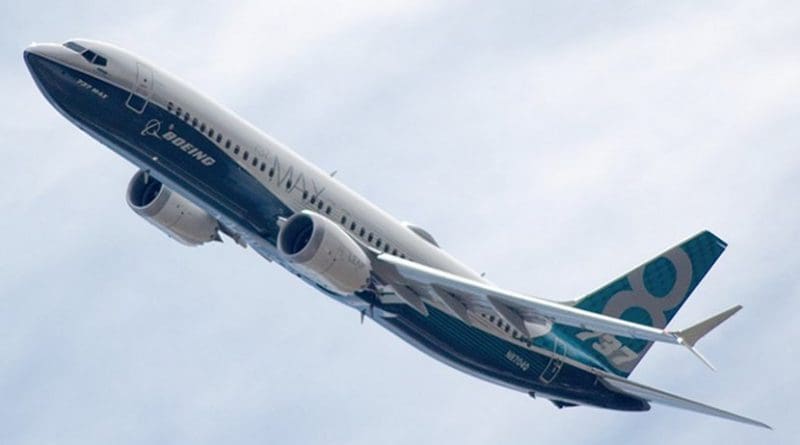Grounded Boeings Set To Get All Clear From EU Regulator
By EurActiv
By Sam Morgan
(EurActiv) — The European Union’s Aviation Safety Agency (EASA) is gearing up to give Boeing’s 737 MAX aircraft a clean bill of health in November, the regulator’s executive director indicated on Friday (25 September).
Earlier this month, EASA performed its own test flights on the MAX in Canada, as part of a recertification process on the grounded planes, which have not flown since March 2019. In late 2018 and early 2019, two fatal crashes forced the plane to be pulled from service.
“For the first time in a year and a half I can say there’s an end in sight to work on the MAX,” EASA Executive-Director Patrick Ky told reporters, adding that the agency expects to lift its technical ban “not long” after US-counterpart, the Federal Aviation Administration (FAA), completes its work in November.
National clearances could take some extra time, he added.
According to Ky, the test flights “went well” and Boeing has agreed to install a synthetic third sensor on all future iterations of the MAX, which should act as an extra failsafe for the issue which caused the two crashes.
The MAX case marks a break in established practice between aviation regulators, which have in the past issued flight certificates based on the findings of other agencies. But EASA insisted from the very beginning that its own inquest and test flights would be needed.
That is largely because the FAA’s slow response to the MAX crashes and relationship with Boeing were heavily criticised. Recent US inquiries into how the plane was certified for use in the first place have confirmed the regulator’s shortcomings.
Earlier this week, Democratic senators urged the FAA to publish its full assessment of the Boeing inquiry, rather than just the ‘preliminary summary’ that is currently available.
“Robust transparency is needed to ensure that independent experts and the public can review whether this aircraft is truly safe before it takes to the skies again,” a joint statement to the regulator insists.
Even if the MAX is allowed to fly before the end of the year, it is unclear how many airlines will put them back into service, given the huge downturn in air travel demand as a result of the coronavirus outbreak.
Both Boeing and European rival Airbus are struggling to ride out the slump. Airlines continue to cancel MAX orders, while Airbus has warned that more job cuts might be required given the slower-than-expected recovery.

